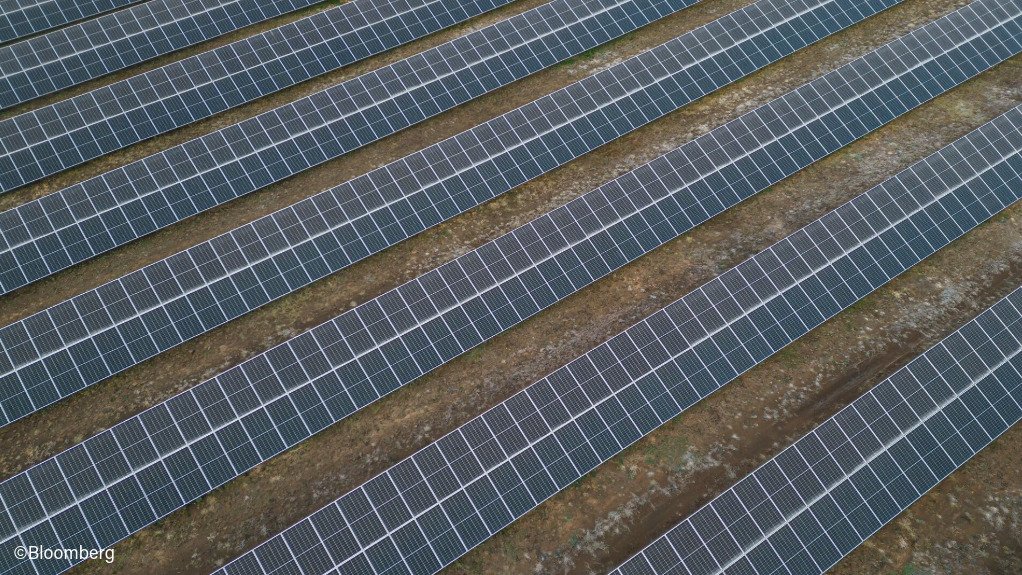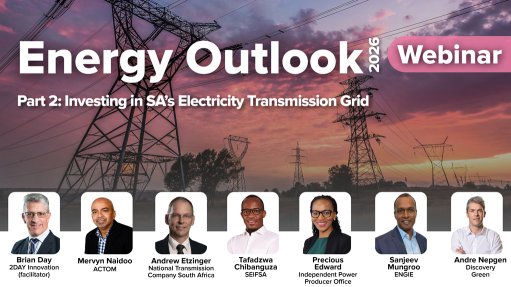Africa could see 3.3m new jobs across 12 green sectors by 2030 – report
An estimated 3.3-million new, direct jobs could be created across 12 green subsectors in Africa by 2030, a report published by staffing specialist company Shortlist and development agency FSD Africa, with analysis from consulting firm Boston Consulting Group (BCG) has found.
The 'Forecasting Green Jobs in Africa' report shows that the majority of these new jobs will be created in the renewable-energy sector, particularly in the solar industry.
The study – an in-depth analysis of workforce needs within major green value chains over the next five years – indicates that the Democratic Republic of Congo (DRC), Ethiopia, Kenya, Nigeria and South Africa together will account for more than a fifth (22%) of new jobs in key sectors, such as renewable energy, e-mobility, agriculture, construction and manufacturing.
“The 'Forecasting Green Jobs in Africa' report underscores the critical importance of a skilled workforce as an input accelerating African green industries and emphasises the need for substantial investment in skills development and workforce mobilisation.
“Additionally, the millions of jobs created in the green revolution will also contribute to the formalisation of African economies, and the inclusion of whole populations in stable systems of remuneration, social security and taxation for the first time,” BCG says in a statement.
The report outlines key strategies required to cultivate Africa’s green jobs ecosystem. These include targeted investments in high-potential sectors and value chains; fostering cross-sector collaboration among governments, the private sector, educational institutions and investors; and the development of comprehensive support policies for green sectors.
Further, the report also calls for further analysis and more granular analysis of labour demand in key value chains to identify Africa’s current skilled labour supply and any potential gaps.
“There is a cross-sector effort across Africa to spur employment and sustainable development, but stakeholders lack a shared, granular understanding of where the green jobs are going to come from. This report offers a methodology for forecasting green jobs, which allows us to get practical about where we need to invest to make these jobs happen,” says FSD Africa CEO Mark Napier.
Significantly, 60% of the employment generated by the green economy over the coming six years will be skilled or white-collar in nature, the report states.
Within this, 10% constitute advanced jobs, which are highly skilled, requiring university degrees to fulfil, while a further 30% are projected to be specialised jobs requiring certification or vocational training, and 20% will be administrative.
“Crucially, these job types tend to attract higher salaries and will, therefore, play a central role in spurring the growth of the middle class in countries hosting these high-growth sectors.
“Also important is the stability of the unskilled jobs created, which will offer ladders up the employment scale for candidates whose employability will be enhanced by access to training and experience,” the report says.
Meanwhile, Kenya, Nigeria and South Africa represent the highest job creation potential, at 16%, owing to population, GDP and industry maturity.
Further, the renewable-energy sector alone is expected to generate up to 2-million jobs, or 70% of the total, of which 1.7-million will be in solar. The report forecasts 140 000 green jobs in solar in South Africa by 2030.
For South Africa, between 85 000 to 275 000 new green jobs are forecast by 2030, mainly in energy and power production, and agriculture and nature.
Additionally, agriculture and nature are forecast to produce up to 700 000 jobs, or 25% of the total, of which more than half, or 377 000, will come from climate-smart agriculture technology in the five countries, the report notes.
The report is a near-term, conservative analysis of the job creation potential of only 12 specific subsectors or value chains and only until 2030.
It is intended to guide near-term investments and policy decisions among universities, workforce development actors, and government to ensure the mobilisation of the right skills and workforce to meet demand, BCG notes.
“Human capital and talent is important as an input to green economic growth and as a positive outcome in the form of millions of new, direct jobs. Policymakers, funders and workforce developers need to meet this near-term demand with effective training, apprenticeships and job or skill matching in hopes of achieving Africa’s green promise,” says Shortlist CEO Paul Breloff.
Article Enquiry
Email Article
Save Article
Feedback
To advertise email advertising@creamermedia.co.za or click here
Comments
Announcements
What's On
Subscribe to improve your user experience...
Option 1 (equivalent of R125 a month):
Receive a weekly copy of Creamer Media's Engineering News & Mining Weekly magazine
(print copy for those in South Africa and e-magazine for those outside of South Africa)
Receive daily email newsletters
Access to full search results
Access archive of magazine back copies
Access to Projects in Progress
Access to ONE Research Report of your choice in PDF format
Option 2 (equivalent of R375 a month):
All benefits from Option 1
PLUS
Access to Creamer Media's Research Channel Africa for ALL Research Reports, in PDF format, on various industrial and mining sectors
including Electricity; Water; Energy Transition; Hydrogen; Roads, Rail and Ports; Coal; Gold; Platinum; Battery Metals; etc.
Already a subscriber?
Forgotten your password?
Receive weekly copy of Creamer Media's Engineering News & Mining Weekly magazine (print copy for those in South Africa and e-magazine for those outside of South Africa)
➕
Recieve daily email newsletters
➕
Access to full search results
➕
Access archive of magazine back copies
➕
Access to Projects in Progress
➕
Access to ONE Research Report of your choice in PDF format
RESEARCH CHANNEL AFRICA
R4500 (equivalent of R375 a month)
SUBSCRIBEAll benefits from Option 1
➕
Access to Creamer Media's Research Channel Africa for ALL Research Reports on various industrial and mining sectors, in PDF format, including on:
Electricity
➕
Water
➕
Energy Transition
➕
Hydrogen
➕
Roads, Rail and Ports
➕
Coal
➕
Gold
➕
Platinum
➕
Battery Metals
➕
etc.
Receive all benefits from Option 1 or Option 2 delivered to numerous people at your company
➕
Multiple User names and Passwords for simultaneous log-ins
➕
Intranet integration access to all in your organisation





















